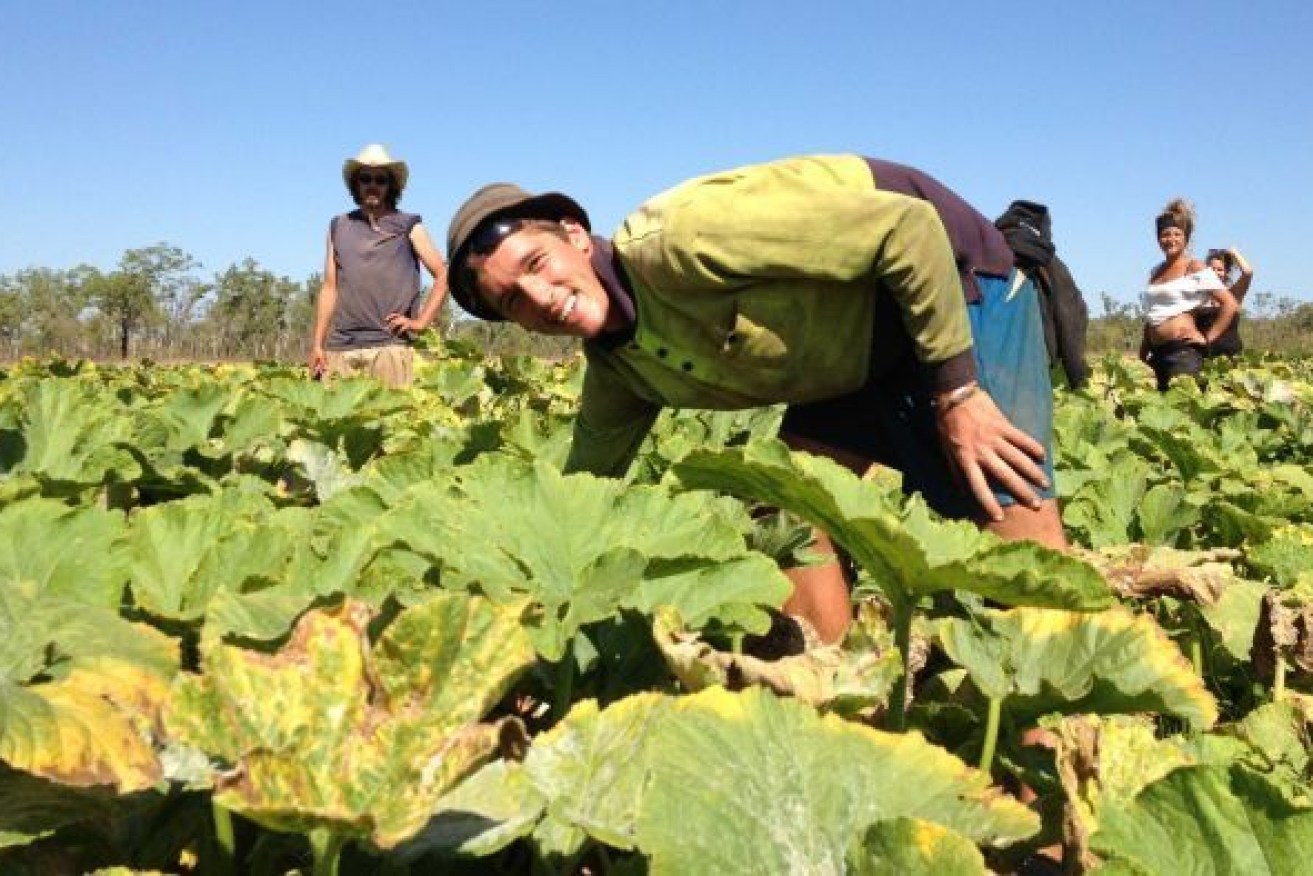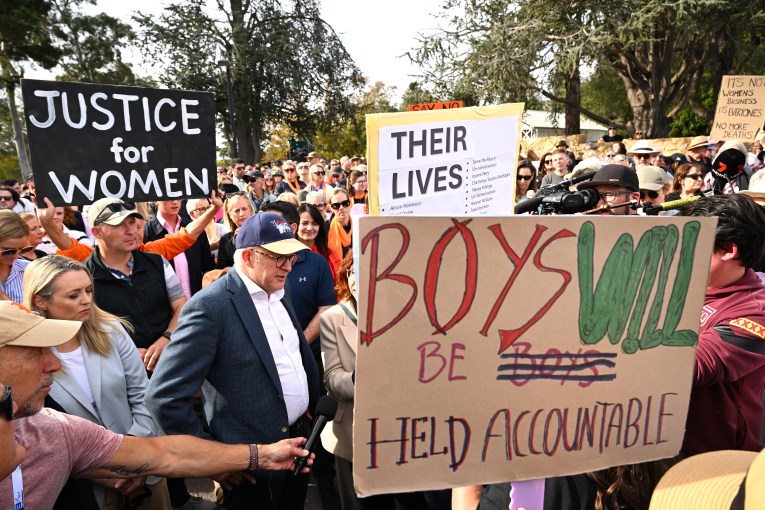‘I’m not as exploitable as a foreigner’: Lukus is young and fit, but no farm will give him a go


Farmers are complaining of a shortfall in workers, but Australians say they can't get jobs. Photo: AAP
Unemployed Australians say they are struggling to get farm work and are dismissed as ‘lazy’ by employers, despite the industry complaining of a massive shortfall in workers.
The revelations come as the National Farmers’ Federation lobbies the federal government to allow backpackers into the country to work as au pairs and harvest labourers, fearing the farm industry may have a shortfall of 20,000 workers.
But some Australians say they are finding it impossible to get work on farms and are faced with unnecessary barriers, like being forced to stay in expensive accommodation.

Lukus Muir, 34, is fit and healthy, but can’t get a go as a farmhand.
Lukus Muir is a fit 34-year-old.
He lost his job building stages when the pandemic hit, crushing the music industry.
Since March, Mr Muir has applied for more than 20 farmhand jobs but has not landed one.
He said employers outside Victoria have not wanted to take him, and those inside the state have strict rules about staying in hostels.
“They say our contract stipulates that you have to stay at the hostel. Even on Facebook, when they advertise they say it in the job advert – you have to stay at that backpackers,” Mr Muir told The New Daily.
I have extensive experience in hospitality and fruit and veg supply, but the minute I tell them I have my own accommodation it is the last I hear from any of them.”
Mr Muir lives out of his van and says the going rate for a hostel bed is between $150 and $300 a week.
“They want to take it directly out of your wage,” he said.
Mr Muir said several farmers told him flat out they won’t hire Australians.
“I’ve been told from a couple they’re worried that, as an Australian, I’m going to be lazy. One told me he doesn’t employ Australians because they tend to be scared of hard work,” he said.
I’m not as exploitable as a foreigner.”
Although he stressed that plenty of farmers did play by the rules, he had been disheartened by not being able to land a job in an industry desperate for workers.
“I’m not scared of hard work,” he said.
“Now they’re talking about fast-tracking Pacific Islander workers and that’s fine, and all power to them, but if they won’t even consider an Australian employee who’s willing to work, then it leaves some questions.”
In July, the government announced the resumption of the Seasonal Worker Program to help fill labour shortages in key industries, with Agriculture Minister David Littleproud saying it could bring in up to 4000 workers.
But the nation will need 20,000 over the next six months to fill the gap and make sure farmers’ produce does not go to waste, according to a report compiled by Ernst and Young last month.
Desperate to avoid a disastrous situation where potentially billions of dollars worth of crops rots in the field, the NFF teamed up with the Backpacker Youth Tourism Advisory Panel (BYTAP) to lobby the government to prioritise backpackers entering Australia to fill the shortage of farmhands.

Young, fit Australians say they are struggling to get farm work. Photo: AAP
Under the proposal, sent to the government last week, backpackers from countries with low COVID-19 cases would be allowed to enter Australia before quarantining and commencing work or travel.
The NFF and the federal government did not respond to The New Daily’s request for comment on Mr Muir’s situation.
New government measures designed to encourage unemployed Australians to hit the harvest trail mean those on JobSeeker can earn up to $300 a week without having their payments affected.
But the industry is rife with exploitation, with the Fair Work Ombudsman’s 2018 Harvest Trail Inquiry Report showing 2500 workers were underpaid by $1 million in the picking industry.
United Workers Union farms director Jannette Armstrong said the exploitative nature of the industry meant many Australians were turned off the work.
“Piece rates and low wages, and poor WHS conditions, along with dodgy contracting and blatant exploitation when it comes to things like farm worker accommodation, make it a less-than-appealing vocation for many,” Ms Armstrong said.
Because of the demanding conditions, low pay and seasonal nature of the work, the industry has come to rely on migrant workers who could be exploited more easily than Australians, she said.
“Government and the big supermarkets that control our fresh food supply chain continue to turn a blind eye to these issues in horticulture. It’s organised irresponsibility,” Ms Armstrong said.
“The government benefits politically, and the supermarkets make obscene profits from it – it doesn’t seem like they actually want these problems resolved.”








